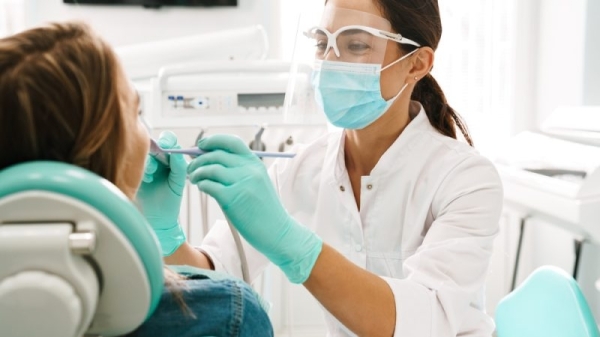EU institutions agree on a definite phase-out of mercury in dental procedures

The Council and the European Parliament agreed on Thursday (8 February) on the proposal to phase out mercury in dental amalgam completely as part of the commitments from the EU’s Zero Pollution Ambition.
Mercury is a highly toxic chemical that harms human health and the environment. Exposure to high levels of this chemical can damage the brain, lungs, kidneys and the immune system. However, despite effective and available alternatives, around 40 tonnes of mercury are still used in the EU every year, particularly in dental amalgams.
The Environmental Network for Environmental Medicine (EnvMed Network) warned in a press release that dental amalgam consists of 50% highly toxic mercury and highlighted that it is the largest remaining use of mercury in the EU, with around 1,000 tons of mercury already found in the mouths of the European population.
“Nearly half of the EU member states have already phased out its use or reduced it to less than 1%. It has been proven that the alternatives are effective, available and affordable so that hazardous waste shouldn’t be unnecessarily placed into people’s mouths”, said Florian Schulze, managing director of the EnvMed Network.
This is not the first time EU institutions have discussed the elimination of mercury in dental amalgam; in 2012, a study conducted by the European Commission showed that the phase-out could have been possible starting in 2018.
A second study in 2020 and a Commission’s proposal in 2023 moved the deadline to 2025, the date finally agreed by co-legislators.
The new deal sets 1 January 2025 as the maximum phase-out date, except in cases where dental amalgam is necessary to address the patient’s specific needs.
In countries like the Czech Republic or Slovenia, mercury dental amalgam is the only fully reimbursed material by the public health system; in these cases where the current reimbursement system does not cover mercury-free alternatives, the new deal envisages an eighteen-month derogation until 30 June 2026.
The export of dental amalgam will also be prohibited from 1 January 2025, whereas the manufacturing and import into the EU will be banned from 1 July 2026.
Read more with Euractiv




